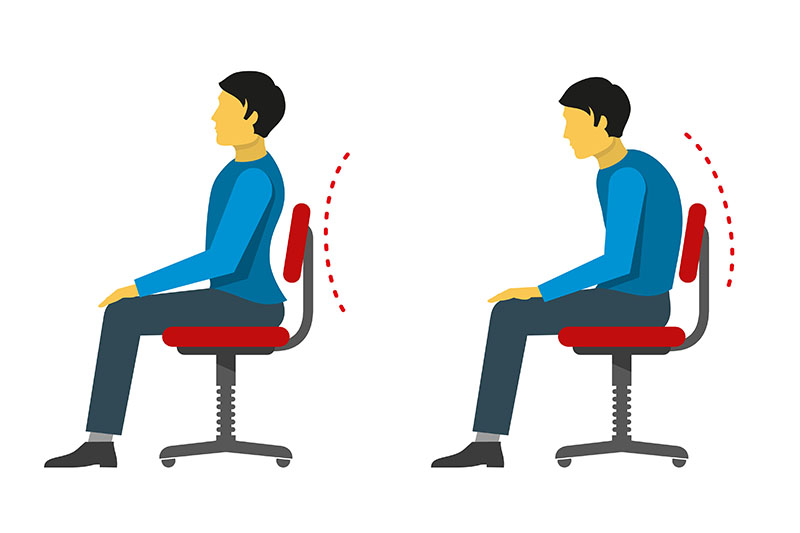Often a posture assigned to teenagers and disaffected youth, slouching is traditionally considered to be a “bad” posture — with some claiming it will damage your spine and cause pain.
The term itself hails from medieval Norse meaning “lazy fellow” — and later the middle English word meaning “walking, sitting or standing with a loose attitude”.
In the last 150 years or so, posture has come to be associated with aspects of a person’s value, dignity, respectability and morality. Erect posture has been deemed “healthy”, “the aesthetic utopia”, “dignified”, “a backbone against subjugation”, “attractive” and “good” by various cultures, political movements and even social media influencers.
So it’s not difficult to see then how slouching came to be considered “bad” for us since it’s long been considered to be a bodily representation of negativity.
But while posture is heavily overlaid with psychological meaning, is it really that bad for our spines if we slouch? Are certain postures really “good” and others “bad”?
The great news is that in the past two decades, there’s been a plethora of rigorous clinical studies conducted which have concluded that there’s no relationship between slouching and spinal pain. There’s also no evidence that people who slouch are more likely to suffer with back or neck pain compared to non-slouchers.
There’s also no clear evidence that slouching while sitting at your desk or while using your phone causes damage to the spine. Even the UK government’s latest guidance on working with screens puts less emphasis on an idealized posture at the workstation.
Instead, they emphasize the importance of adopting comfortable positions, varying your positions, avoiding awkward positions (such as flexing or arching your back or neck) and including regular breaks from your static posture throughout the day. All of these tips will help reduce the risk of developing pain and muscle fatigue.
So if you experience back or neck pain, you can rest assured that the posture you adopt when walking or sitting probably isn’t to blame as much as you might have been led to believe. Instead, it’s probably related more to other features of life — such as how stressed or physically active you are and if you have previously had back pain.
There’s a pretty good reason why slouching doesn’t damage our spines, and that is because our spines are designed to allow movements as diverse as Olympic weightlifting to limbo dancing.
Our spines aren’t going to be damaged by a bit of sitting down, even if we happen to be wiggling our fingers on a keyboard at the same time. And while standing desks are popular, prolonged standing is no more comfortable for the spine than prolonged sitting
The best thing to do throughout your day, to both make your body feel more comfortable and to increase your productivity and positive sense of wellbeing is to break up prolonged periods at your desk with breaks to walk, stretch, stand or sit down.
Positive posture
But there is one area where slouching may have a negative effect. Slouching has been linked to poorer information and memory recall, as well as worse mood when compared to sitting upright. These memory and mood problems are shown to be rapidly improved when moving from a slouched to erect posture. So perhaps there is some truth to the notion that slouching may still be a bodily representation of negativity.
But aside from that, the evidence overwhelmingly suggests there’s no single, ideal or good posture. Differences in spinal posture are not related to pain. And, in fact, posture naturally varies from person to person — and can even vary depending on race, sex, and even mood.
So if you’re a sloucher, rest assured that it isn’t really bad for you and is as good as any other posture you adopt. Comfortable postures are safe and sitting is not dangerous.
Overall, the human spine is designed to be on the move rather than static in one posture for long periods, which is why movement and changing your posture throughout the day is important to reduce fatigue and subsequent discomfort.
If you can’t move around and spend all day slouched in front of the computer, this may cause you some discomfort – but it’s not actually damaging your spine.
Chris McCarthy, Research Fellow, Rehabilitation, Manchester Metropolitan University. This article is republished from The Conversation under a Creative Commons license. Read the original article.

